Modern healthcare startups have completely revolutionized the face of medical science and treatment. Startups like TytoCare and Modern Fertility have helped doctors develop better treatment plans. It has led to millions of happy and satisfied patients worldwide.
By 2025, the tech-driven patient care and diagnosis market will be around $350 to $410 billion. This market will grow exponentially as these companies use modern technology like AI and IoT, which will benefit many healthcare institutions.
These healthcare companies are growing at a rapid pace by improving patient data management, prosthetics, diagnosis and offering personalized care.
This post takes a deep dive into how healthcare startups are evolving in 2022.
Growth Avenues for Healthcare Startups
Small and mid-level health startups have constantly been working to improve medical facilities provided to patients. Their primary aim is to make medical services more accessible and affordable.
Let’s understand the avenues medical startups are focusing on enhancing.
i). Remote Treatment Services
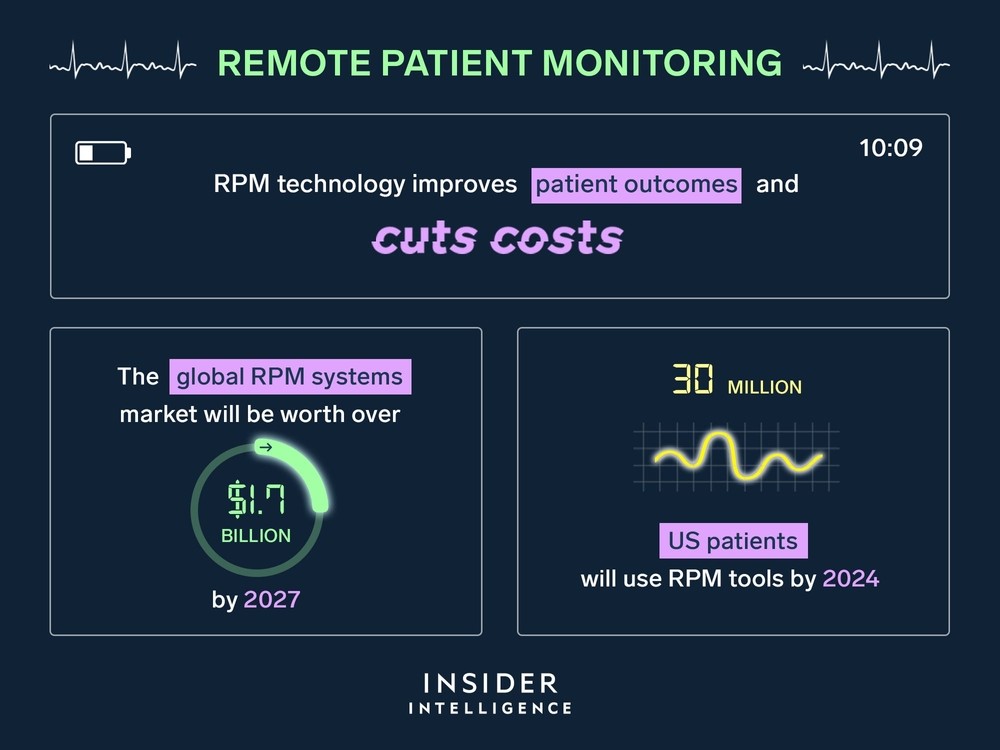
Source: Insiderintelligence
Not all patients can visit a physician to receive treatment. Since minor medical checkups can happen remotely, it has expanded the scope of telemedicine. That’s why most startups concentrate on delivering customers remote healthcare services.
The best telemedicine platforms enable patients to seek medical consultation from an app or a website. It is helpful in situations where physical distancing is necessary. Moreover, it offers convenient and affordable services to patients.
Startups are also working to assist doctors in improving patient monitoring through telemedicine platforms. Doctors can use these applications to prescribe medicines and weekly checkups and explain new treatment plans.
As internet services have become much more affordable, startups are working to equip hospitals with remote monitoring technologies. It will help small or large healthcare centers to conduct video consultations, send online prescriptions and have live chat sessions.
ii). Improving Mental Health Facilities
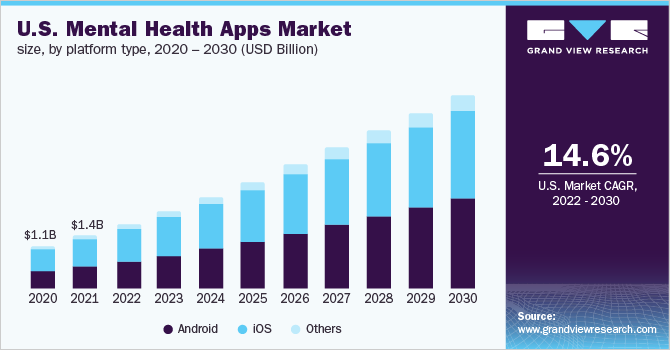
Source: Grandviewresearch
Another vital avenue where startups are focusing on is mental health. Companies are trying to create accessible mental health services, which are important for many people.
As mental health is an uncomfortable area to address, most patients suffer in silence. That’s why modern startups try to break their mental barriers and tackle psychological issues. For instance, American mental health startup 7Cups offers real-time psychological support and counseling.
Certified mental health counselors help patients tackle issues like depression and anxiety on their platform. They also provide online therapy and virtual chat support to help patients.
Similarly, platforms like Headspace provide customized meditation plans and mental health support resources.
iii). Enhanced Medical Data Management
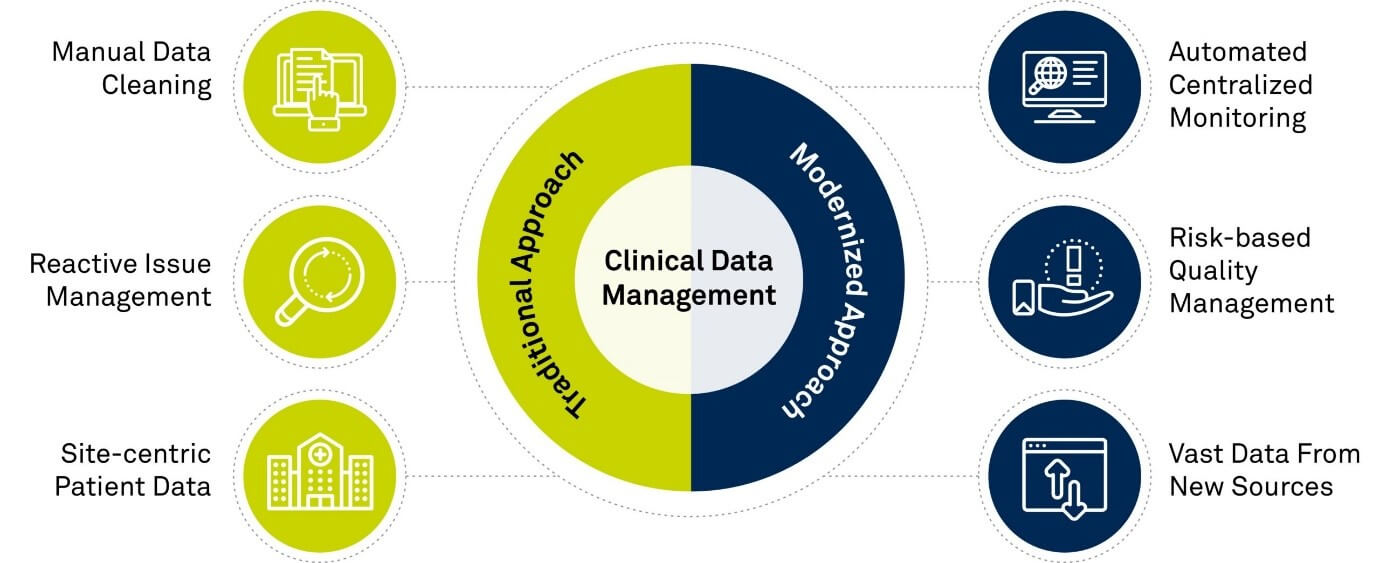
Source: Medidata
Collecting and organizing medical data is crucial for developing treatment strategies. Medical data includes vital patient information like gender, medical history, and prescribed medication. So, the data helps doctors modify or enhance the current treatment plan.
Health startups focus on providing better patient data management facilities to hospitals globally. They are developing apps and tools to conveniently help healthcare professionals collect medical data. So, these healthcare startups help doctors in:
- Develop patient profiles using medical data to devise treatment procedures
- Analyze medical data to derive insights that facilitate better decision making
- Modify existing treatment plans according to patient survey data
- Convert unstructured medical information into structured data
- Evaluate multiple factors like treatment success rate, total treatment time and associated medical expenses
All these data management facilities are compliant with the latest data security laws. So, the startups help medical centers take charge of their patient data and improve treatment outcomes safely.
iv). Task Automation
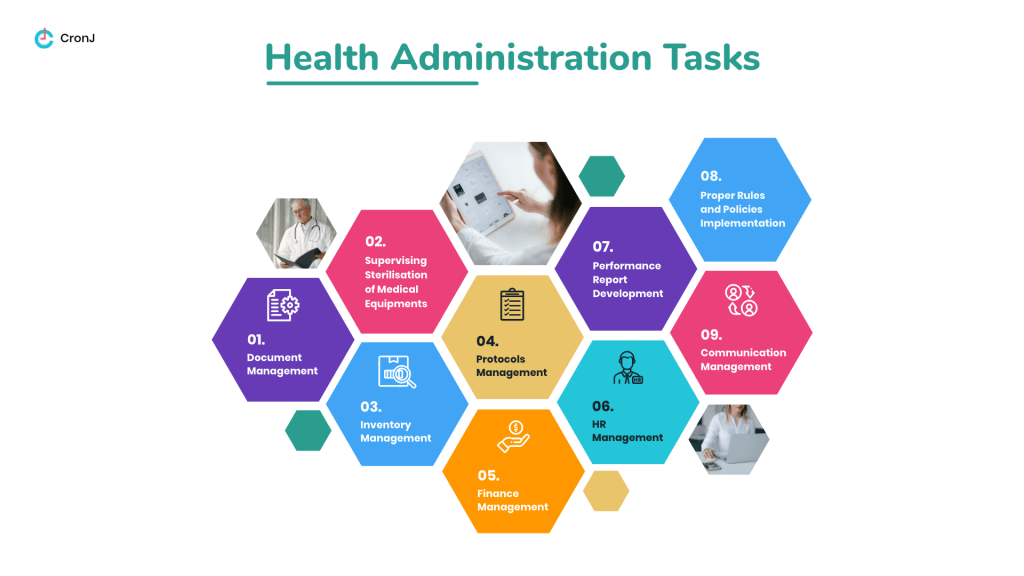
Source: Cronj
As hospitals look to upgrade their efficiency, they face a common roadblock, repetitive tasks. These include entering patient information, creating patient profiles, developing medical invoices and scheduling meetings.
Offering automation will allow hospitals to reduce the time and money needed for carrying out daily tasks. So, the companies are slowly developing enhanced software to help healthcare professionals organize time-consuming tasks, like patient appointments.
Professionals can conveniently set up and cancel appointments by integrating the EHR systems with these platforms. In addition, this software sends reminders to patients to show up for appointments.
Other ways task automation is benefiting healthcare institutions:
- Fewer employees are required for daily tasks, reducing hiring expenses
- Faster access and transfer of patient information
- Automating processes reduces the chances of human error
- Incubation medical services leading to patient satisfaction
- Doctors can handle emergencies swiftly by automating associated tasks
v). Reducing Medical and Treatment Expenses
All the avenues discussed above help medical facilities reduce their operational expenses. Still, the healthcare expenses are too high, and the global market will be worth $10414.36 billion by 2026. In the US, healthcare spending might be around $4 trillion in 2022!
So, healthcare startups are offering various applications and software to control these expenses.
For instance, many startups develop IoT-based wearables for analyzing and collecting patient information. These hands-free gadgets utilize sensors to capture patient data like heart rate and calorie count.
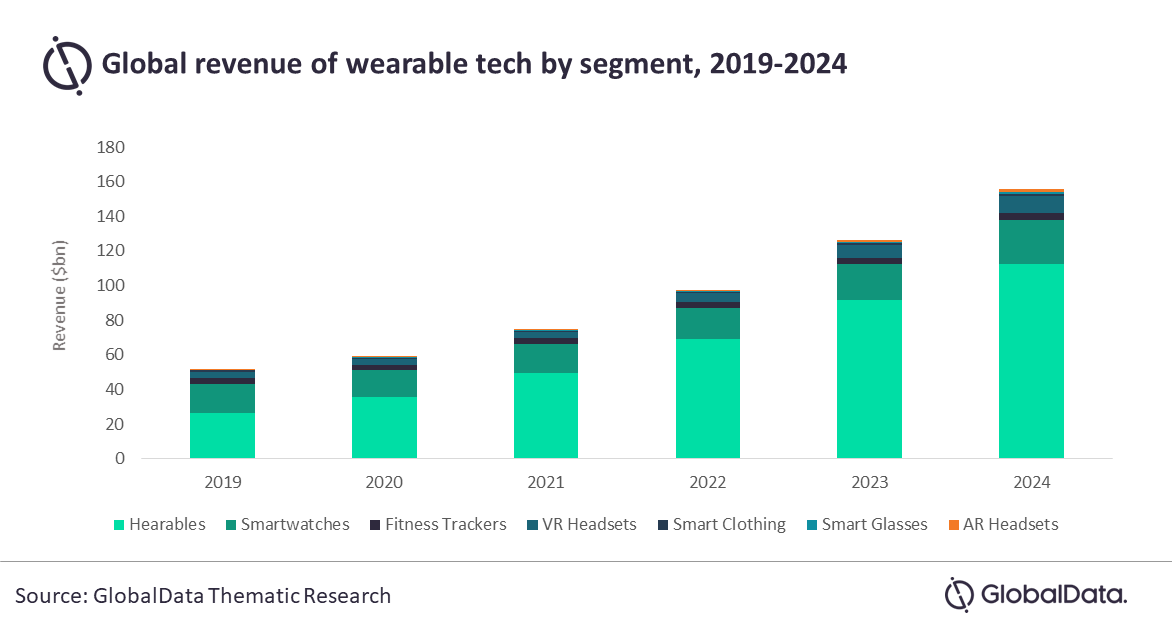
Source: Globaldata
Subsequently, these devices send the information to medical data systems so doctors can access it. It helps develop better prescriptions and treatment plans without requiring many human resources. Plus, the process saves a lot of time, automatically lowering related expenses.
Startups are equipping hospitals with digital marketing tools to enhance their customer base. So, by optimizing hospital websites and improving their SEO, these institutions can reach more patients.
Top Healthcare Startup Trends
After understanding the areas healthcare startups are currently working on, let’s focus on the top trends. As these startups strive to evolve, they will invest more in research and development to cater to their customers’ needs.
Some healthcare trends that might define the future of medical startups include robotics, AI, and virtual reality.
i). Artificial Intelligence for Advanced Diagnosis
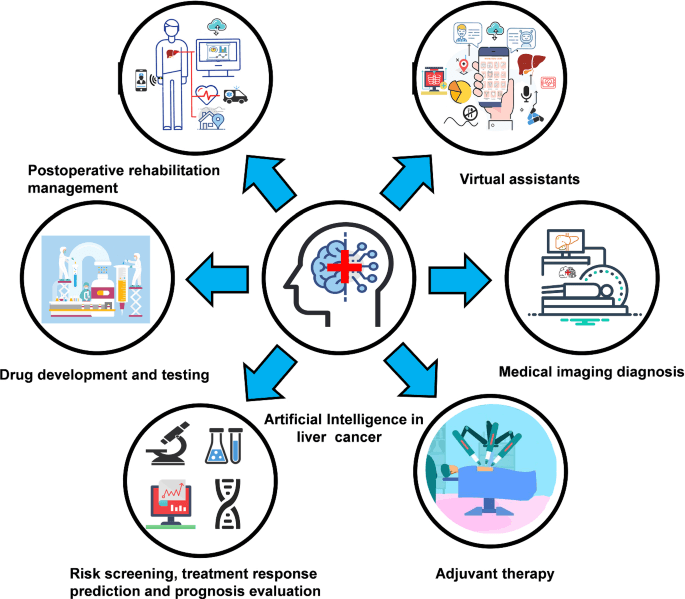
Source: Springernature
Startups utilized the power of Artificial Intelligence and machine learning to help doctors diagnose and evaluate. Now, they are taking this up a notch by letting users diagnose their conditions themselves.
For example, Healthily is a startup that provides an AI-based app to ask health-related questions to users. Then, it uses machine learning to diagnose ailments.
So, it helps patients prepare themselves mentally before a checkup and gives them basic information about their condition.
ii). Robotics in Surgery
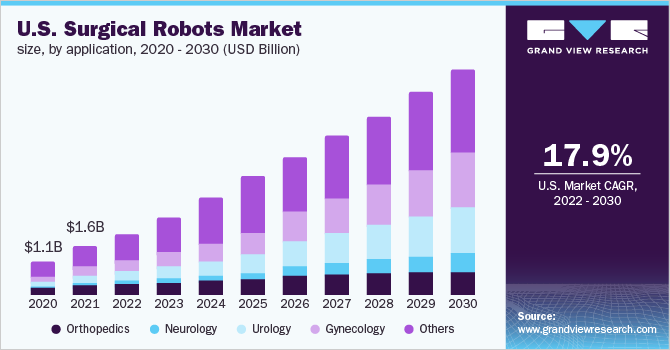
Source: Grandviewresearch
Startups will look to invest more in robotics to support healthcare institutions as more hospitals are interested in using robots for complex surgeries. They might include robotic professionals as a part of their workforce!
So, healthcare startups are developing advanced robots to give medication to patients, transport lab samples and create test results. These robots can reduce errors in surgical and diagnostic processes.
The companies are also researching robots that can detect diseases and provide personalized care. It will not only reduce human errors but also help hospitals to cut their overhead expenses.
iii). Virtual Reality for Better Treatment
The next trend that can redefine healthcare is virtual reality for enhancing treatments. At present, the use of this technology in healthcare is at its initial stages. But, it is expected that the market for VR in healthcare might be worth $6.20 billion by 2029.
Doctors can utilize VR glasses to visualize their patient’s internal organs distinctly. It can significantly improve the treatment standards and efficiency. In addition, virtual reality can also help in educating medical students about human anatomy.
Frequently Asked Questions
1). Why are startups focusing on personalized healthcare services?
Healthcare startups are focusing on improving personalized healthcare facilities to meet customer demands. Telemedicine platforms are great examples of personalized care.
Plus, personalized services also make healthcare facilities more accessible for users.
2). What are some challenges healthcare companies might have to face?
Healthcare firms’ primary challenge is developing platforms that secure patient data properly. They need to implement security protocols and encryption facilities for this.
Another challenge is providing cost-effective payment models for availing telehealth services. Patients want multiple pricing options for using these apps and services.
3). What are some healthcare startups to watch out for?
The most promising healthcare startups that’ll transform the industry include SonderMind, Embleema, Headspace, Nference and Novoic.
The Bottom Line
As you might have understood by now, healthcare startups will continue expanding the scope of the industry. They’ll look to improve their medical products and services by investing more in research and development.
Multinational companies and venture capitalists are also investing in these startups to gain lucrative returns. However, to meet the rising demands of patients, the startups need to upgrade their services continuously.
These companies might have to hire experienced professionals to elevate their services. But, as long as the services are reasonably priced, customers will be satisfied.








